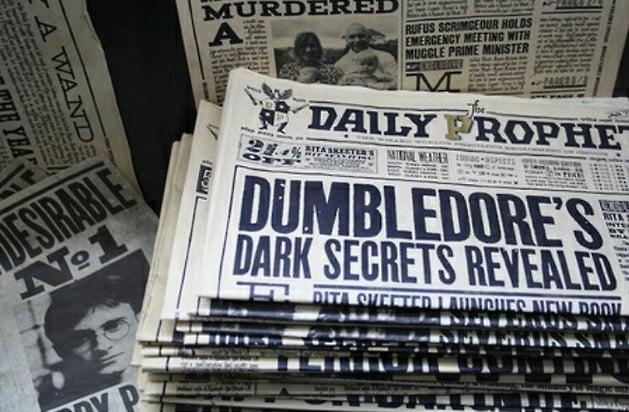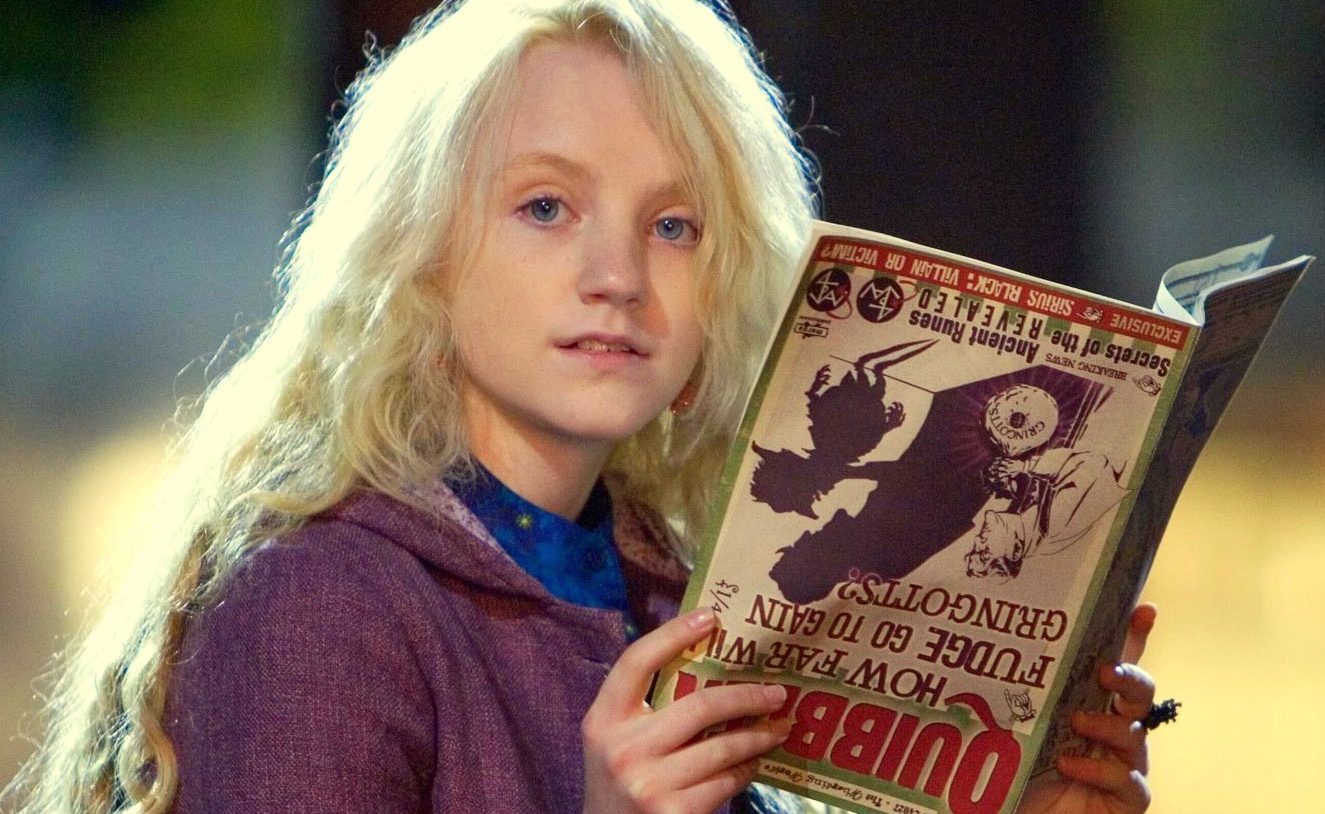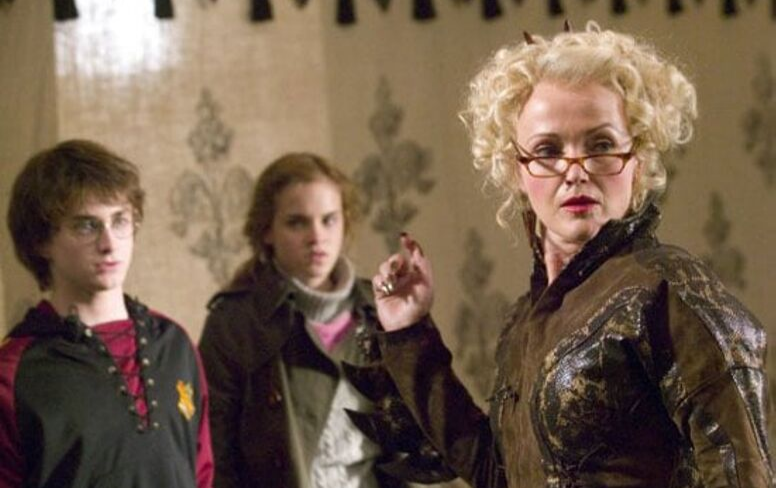Missed Opportunities in the Wizarding World: Journalistic Reform
September 18, 2019—Over the course of a decade, JK Rowling delivered to us a famous story about a Boy Who Lived in 1,084,170 words. In case you missed that, the Harry Potter series includes well over a million words.
So I want to be clear at the outset of this 4-post blog series that I am not criticizing JKR for storytelling stinginess, and I am quite satisfied with how she chose to use those million+ words.
But as much as was included, much was left out. We all have unanswered questions. We’re all intrigued by aspects of her fictional world that could have been explored more. But there’s only so much a book series can relate.
So allow me to imagine that JK Rowling had had another million words to tell us her stories. How could the series have been shaped differently? What topics could have been developed more deeply? I present a few humble thoughts on how she could have used those extra million words.
Also, all posts will entirely disregard Cursed Child. You have been warned.
Fill in the blank: Harry Potter is a story about ____________.
I’ve heard (and offered) many different endings to that sentence. “Magic.” “Good versus evil.” “The power of love.” “Coming of age.” “Standing up for what you believe in.”
They’re all good answers, and they’re all true. The Harry Potter series is far too long, too complex, too nuanced to boil down into one theme or subject matter. So I’d like to submit another possible ending to add to the list: “Societal change.”
The British Wizarding World is an elitist, prejudiced, hateful, oppressive society when Harry joins it, in small ways and large. But throughout the series, these wrongs are challenged, fought against, and ultimately overcome.
We don’t get to see the fallout, but we’re left with a sense of hope, that the Wizarding World is in good hands, that it’s learned from the mistakes of the past and is ready to forge a better future.
One where all criminals are tried and punished fairly for their crimes. One where Muggleborns and their families have the same rights and privileges as those who grow up in the magical world. One where non-humans are treated with dignity and given a seat at the table.

But what about the press? What about the Rita Skeeters of the world? What about the kind of “journalism” that interviews orphaned minors in private and then fabricates an entire conversation with absolutely no recourse? It seems that, for the most part, the characters shrug powerlessly at the press’s injustices with a frustrated “What are you going to do?”
Full disclosure, I was a journalism major in college, so I’m more touchy than most, perhaps, about the appalling journalism standards displayed in the Harry Potter series. But what disturbs me more is the seeming lack of any sort of reform to the system.
The overwhelming bias of papers and reporters, the outright lies told in some cases to dramatize stories, the agreement to report the government’s version of events and nothing else… It’s wrong. It’s acknowledged as wrong by the characters in the story. But at no point does anybody say, “We need to stop this.”
(Yes, Hermione kidnaps and imprisons Rita Skeeter and then blackmails her into honest reporting, but that’s not the kind of healthy societal change I’m talking about.)
The Wizarding World reforms in so many ways throughout the Harry Potter series, so why is unethical reporting given a pass? Along with all the other positive changes the Wizarding World underwent, I wish we’d seen The Daily Prophet and journalists like Skeeter held accountable for their actions and safeguards put in place to ensure higher standards in the future.
Every post in this series will be accompanied by a pet theory of Taylor’s related to the post’s subject matter.
Theory: The Daily Prophet is government-owned.
The Daily Prophet is the primary source of news in the Wizarding World, full stop. In the absence of television or any competing national newspapers, The Prophet is journalism at its most influential in Wizarding Britain.
Nobody ever accused it of journalistic integrity, of course, due to (a) its unapologetic determination to publish anything sensational or shocking without the slightest regard for truth—we’re looking at you, Skeeter—and (b) its willingness to say, imply, and print exactly what Fudge instructs in Order of the Phoenix.
Though the first point deeply offends my sensibilities, it makes sense from a business standpoint. As Rita Skeeter once tells Hermione, “The Prophet exists to sell itself.” The sensational and the shocking sell, no matter what world you’re inhabiting.
The second point, though, has always bugged me. Why on earth would a newspaper, even or perhaps especially one dedicated chiefly to the bottom line, turn a blind eye to Voldemort’s possible return? True or not, the story of a 14-year-old celebrity claiming that the most famous Dark wizard in history has come back, kidnapped him, tortured him, and murdered his friend is going to sell.
It just is. Even if Harry is painted as a lunatic, the story would be a big seller. The Quibbler proves that when it runs Harry’s story and sells out multiple issues.

Fudge’s version of events—that Cedric Diggory died in an accident, and Harry’s just lying to everyone about it—is downright tepid by comparison. It’s boring. There’s no way it’ll sell papers like the truth would.
Yet it’s the one that they went with. Why?
The only explanation I can think of for Fudge’s editorial control over the newspaper and its decision to avoid any mention of Voldemort’s possible return is that the Ministry of Magic owns the paper. And so the publication with a near-monopoly on the nation’s news acts as a mouth of the government instead of holding it accountable. And that way lies tyranny.

